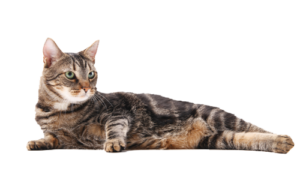We recommend annual exams, including vaccinations, for all adult-aged pets.
Our Houston, TX, veterinarians are able to recommend customized vaccination plans depending on your pet’s age, vaccination history, and overall health.
An important part of wellness care for our pets is prevention of potential diseases, viruses, and illnesses. Our preventative wellness plans include a regular vaccination schedule, even for indoor-only animals. It is possible for your indoor-only cat to get a virus or parasite from another cat in your home that does go outside, or for your dog to catch something at the dog park from another pup.
Viruses are often spread due to contact with other infected animals, which may be wild animals or even cats and dogs that are not currently up to date on their vaccines. Most viruses can spread quickly among small animals.
Cats and dogs are susceptible to different diseases, and so they may require different vaccines to keep them healthy. Whether you have a young puppy or kitten, or an adult or senior-aged pet, your veterinarian at Sunset Animal Hospital will be able to recommend to you the best course of action for vaccines. Each vaccine will be administered via the latest, safest, and most effective pet vaccine technology methods available.

Dog Vaccinations
Dogs are often more at risk of developing illnesses than cats because they are usually exposed to more of the world, including outdoor environments and other dogs. Many of these illnesses are also zoonotic, meaning humans can become infected as well.
To prevent your dog from becoming infected, Sunset Animal Hospital offers a vaccination plan for every individual dog. Our wellness and prevention plans include annual vaccinations, bloodwork, and parasite prevention options to allow your dog to live a happy, healthy, and vibrant life.
Read more about each type of canine vaccination our veterinarians recommend for your dog.
Rabies is an untreatable and fatal virus that affects the brain and spinal cord of the infected animal. By law, canines must receive a rabies vaccine during their initial vaccination series as a puppy.
An adult booster immunization will be administered one year following their initial dose, and then every three years in adulthood.
The DHPP vaccine, also known as “Distemper,” provides protection against Distemper, Hepatitis, Parainfluenza, and Parvovirus.
All dogs should receive this vaccination as a series when they are a puppy between the ages of six and eight weeks old, every two to three weeks until they are a full sixteen weeks.
This vaccination will then be administered again at the age of one year, and then every three years as adults.
Leptospirosis, commonly called “lepto,” is a bacterial disease that can affect both pets and their owners, and if mistreated can ultimately lead to liver damage and death.
This infection is spread by coming into contact with infected urine or contaminated water. The virus is often shed in the urine of wild animals such as possums, skunks, raccoons, and rodents.
Puppies will receive this immunization via two administrations, with three weeks in between, and then annually in adulthood.
The Bordetella vaccine is also commonly referred to as the “kennel cough” vaccine, and it protects against the common and contagious illness that affects the canine respiratory system.
This vaccination is recommended if your dog is ever around other dogs, at dog parks or pet stores, and it is required at a number of boarding facilities, including ours.
The Bordetella vaccine is actually administered intranasally through the nostrils at your puppy’s first visit. Three to four weeks later, our veterinarian will administer the vaccine as an injectable, and then we will rotate between the two versions moving forward.
Canine influenza, also known as the dog flu, is a highly contagious virus (H3N8). It is spread through respiratory droplets of infected dogs, likely from sneezing or coughing, but it can also be spread through contaminated objects such as toys and blankets.
Symptoms of canine influenza range from mild – runny nose, coughing, sneezing – to severe – fever or pneumonia.
The first two doses of this vaccine are administered three weeks apart, and then annually in adulthood.
Cat Vaccinations
Cats are also susceptible to a number of diseases, infections, and viruses, even if they are indoor-only or the only pet in the home. In addition to providing the basic care for your cat, such as food, water, and love, preventative wellness care, including vaccines, is imperative to their overall health and wellbeing.
Our Houston, TX, animal hospital’s medical team is proud to serve your cat. We offer general wellness care including regular heartworm testing and prevention, recommended bloodwork as needed, and multiple vaccinations to keep your furry feline as happy and healthy as possible. Read more about the feline vaccinations we recommend and offer below.
Rabies is an untreatable and fatal virus that affects the brain and spinal cord of the infected animal.
Kittens will receive this vaccine once they reach the age of twelve weeks old. Following the initial vaccination, cats will receive this immunization every year in adulthood for the most advanced safety and protection.
The FVRCP vaccine protects against multiple viruses that are highly contagious among cats and detrimental to the respiratory and gastrointestinal systems: feline viral rhinotracheitis, calicivirus, and panleukopenia.
The first dose of this vaccine will be administered at six weeks of age, and then every three weeks until the kitten is sixteen weeks old. As adults, cats will then continue to receive the FVRCP vaccine annually at their regular wellness visit.
FeLV, known as feline leukemia virus, is a deadly viral disease that affects a cat’s immune system, ultimately leading to cancerous conditions such as leukemia.
When a cat is first infected, it can be difficult to detect any symptoms for the first few months, if not years. Because it is difficult to diagnose at first, it is easy for them to infect other cats that they come in contact with.
Kittens should begin this vaccine series at nine weeks old, then receive another booster four weeks later. A single dose will be administered at one year of age, and then every three years after.



